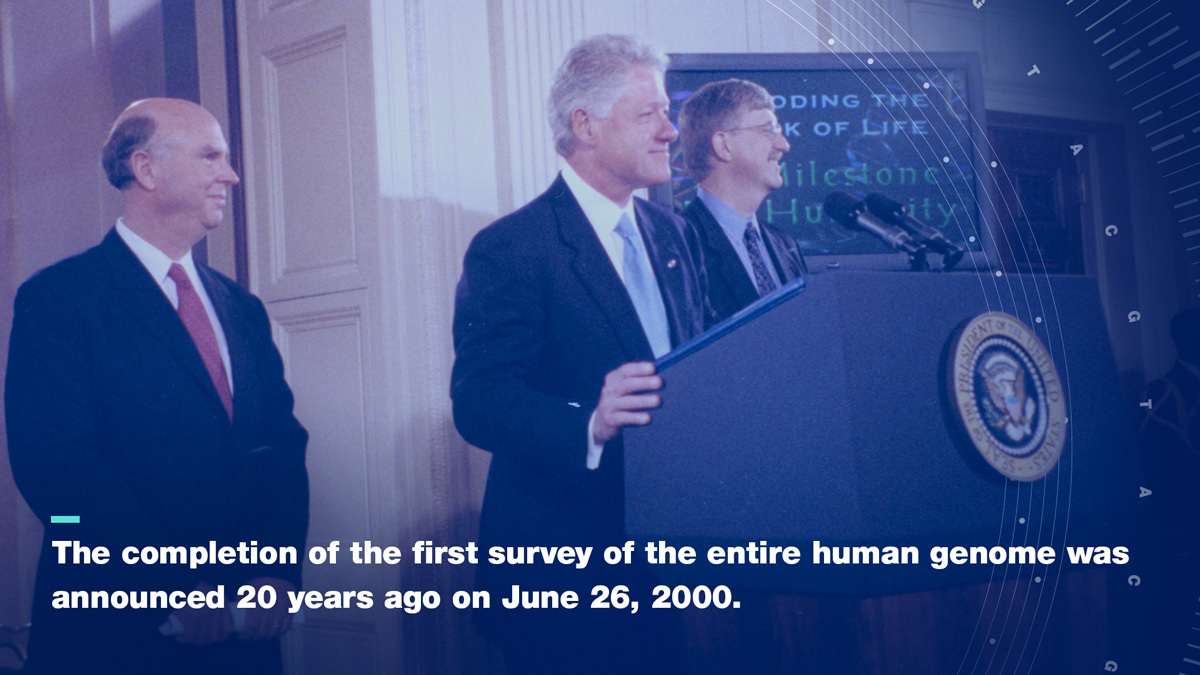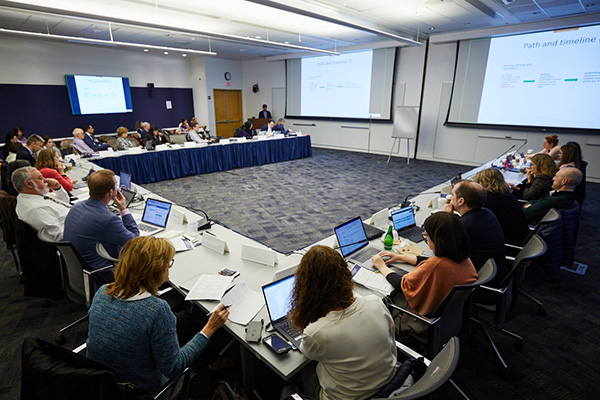20 years later, genomicists remember White House event announcing draft human genome sequence
As is likely the case for many of your organizations, NHGRI and NIH are starting to bring some of our staff back to the physical workplace. This will obviously be a complex and lengthy process! As has been the case for the past few months, NHGRI staff will continue pursuing our genomics-driven mission, whether working remotely from home or at our physical workspaces at NIH.
To foster a safe and fair research and training environment, combating all forms of harassment is a priority for NIH. I would like to call to your attention to a recently published editorial in Science that describes a new NIH guidance that holds grantee investigators and institutions accountable for reporting findings of sexual harassment.
Last month’s issue of The Genomics Landscape featured NHGRI efforts to develop a plan for substantially increasing the diversity of the genomics workforce in the United States. This included gathering input from the genomics community about successful programs and strategies in this area as well as new ideas. I want to thank all of those who have or will provide such input!
All the best,
![]()
In this issue
- 20 years later, genomicists remember the White House event announcing the draft human genome sequence
- NIEHS appoints new director
- Ninth meeting of committee for improving genomic literacy of healthcare providers
- ACMG issues statement regarding genomic data and electronic health records
- All of Us Research Program opens data platform for beta testing


About The Genomics Landscape
A monthly update from the NHGRI Director on activities and accomplishments from the institute and the field of genomics.
For More Information
Last updated: July 2, 2020





